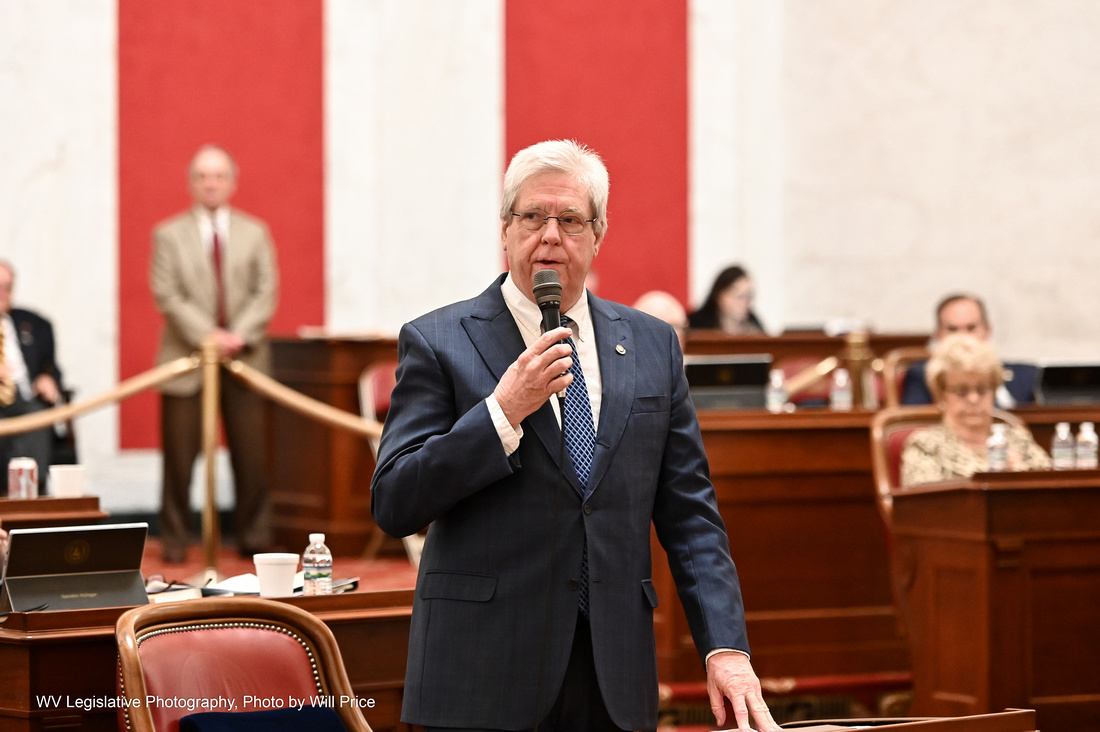West Virginia senators have removed a presumption of 50-50 custody from a bill that passed the House of Delegates a month ago, along with a provision to reopen closed child custody cases in which parents were not considered for equal time.
With changes from the Senate Judiciary Committee late Wednesday night, House Bill 2363, dubbed the “Best Interests of the Child Protection Act of 2021,” still advocates for “frequent and continuing contact with both parents” in a divorce or another type of separation as being “in the best interests of the child.”
But instead of starting out with giving each parent 50 percent of a child’s time, the committee agreed that House Bill 2363 should offer family court judges more leeway.
If a judge decides a parent should have more than 65 percent of a child’s time or less than 35 percent, they’re allowed to issue that decision as long as it’s in writing and made with evidence.
The bill gives judges a few new items to consider when devising shared custody plans — that includes the consideration of “parenting” functions in addition to “caretaking” functions.
Caretaking functions are those that address a child’s immediate, physical needs, like changing a diaper, bathing or feeding a child. “Parenting” functions encompass the not-so-obvious ways a parent can provide for a child, like working a job, shelter and transportation.
Lawmakers considered House Bill 2363 and these changes late Wednesday night and early Thursday morning, eventually adjourning just before 2 a.m.
They took nearly two and a half hours of testimony from West Virginia parents, advocates against domestic violence, a family court judge and Del. Geoff Foster, R-Putnam, who is the original bill’s lead sponsor.
“I don’t particularly like the strike-and-insert, the way it came out,” said Foster, referring to the Senate’s modifications to his bill.
Foster said he believed 50-50 was “the fairest starting point” for parents. However, he also said that the Senate’s version of the bill would improve existing law.
Senate Version Won’t Reopen Closed Child Custody Cases
All four parents who testified to the committee asked senators to reject the proposed changes and instead pass the House version of the bill.
These parents — three fathers and one mother, all of whom said they’ve been through the West Virginia family court system — told senators that current law isn’t fair to parents who work full time, nor does it prioritize keeping half siblings together.
“The bottom line is, this bill is the only chance I have for spending more time with my children,” testified Andrew Tennant of Morgantown.
Tennant asked the committee to reject the changes because he favored a provision in the version of the bill that the House passed, which would’ve allowed him to reopen his case once the law changed.
At present, parents can reopen their cases if there’s been a “substantial change in the circumstances of the child” or of either parent. The Senate Judiciary version states that this legislation, if it becomes law, does not count as a change in circumstance.
Tennant, who told senators he is an active-duty member of the U.S. Army, said he agreed to less than 30 percent custody around 2018 because he was stationed in Texas. But now that he’s back in West Virginia, living about half an hour from his kids, he’s been unsuccessful in petitioning the courts for a new shared custody plan.
“This isn’t right. It’s not fair,” Tennant said. “I haven’t done anything. My children haven’t done anything to deserve this.”
‘Even The Most Well-Intended Parents’ Have Struggled With 50-50, Judge Says
Deanna Rock, a family court judge in the Mineral County area, told the committee that there are on average 36,000 family court cases filed in West Virginia each year, all of which have their own facts and stories.
Rock supported the Senate’s amendment because it offered less of a “one-size-fits-all” solution to a problem many parents are frustrated with.
“Even the most well-intended parents sometimes can’t pull it off,” Rock said of 50-50 custody. “It’s a difficult thing to do.”
Samuel White for the West Virginia Coalition Against Domestic Violence also agreed with the Senate’s changes to House Bill 2363.
White said the version of the bill that passed the House would’ve created “a one-size-fits-all solution to a much more complex problem.”
He also said the legislation that passed the House would’ve forced victims of domestic violence to prove in court they were abused in order to obtain a plan that’s not 50-50 custody — under current law, White said victims don’t have to prove they’ve been abused in court to secure all or most of their child’s custody.
“I will say that the strike-and-insert is an improvement in that it allows the court to continue to focus on the best interest of the children in the case,” White said. “It allows the judge who has the parties in front of them to be the person who makes that decision.”
Although testimony lasted hours and senators asked most witnesses several questions, there was no debate on the bill. The legislation is now before the full Senate for consideration.
Emily Allen is a Report for America corps member.
